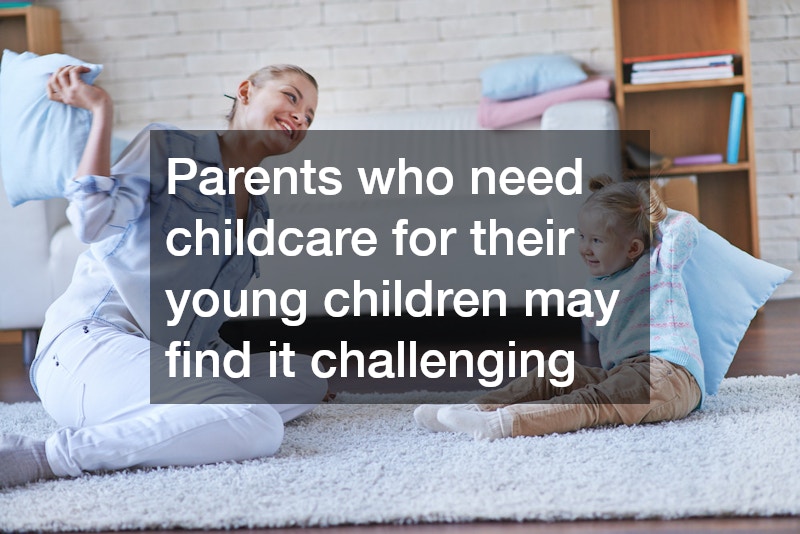Parents who need childcare for their young children may find it challenging. Children under three years old who are cared for outside their homes will typically go to a daycare center since the benefits of daycare provide an atmosphere of safety, fun, and socializing. In contrast, a preschool normally offers children a curriculum that readies them for kindergarten.
Some working parents are fortunate enough to have a relative nearby who can care for their child. Other families join with a group of other parents who each volunteer to watch a group of children a day or two per week. You may discover your church has a childcare center, which gives comfort to parents who want their children to be in a place that emphasizes their faith.
If this is your first time considering child care options for working parents, you may wonder how to pick a daycare. When searching for daycare facilities, be sure you check to see if the center has any parent reviews. You’ll want a place where it looks like the caregivers truly care for the children. A varied schedule is also a sign of great childcare, so ask for an activity calendar during a tour.

When it comes to raising children, there is no instruction manual that tells you exactly how to provide young child care. In fact much of infant care, toddler learning, and beyond is highly intuitive and instinctual, with many parent simply choosing to go with their gut. And while you can rarely if ever go wrong with going with your gut as a parent, having a little extra help can work wonders in terms of supporting baby care needs and young child care.
Sure, there may not be an instructional manual or step by step guide for young child care, but there are a few tried and true methods that might be worth incorporating. Here are a few things you should keep in mind when it comes to young child care..
Don’t compare
Although there are certain important milestones that most children reach at certain ages, don’t jump to conclusions or make assumptions about your child’s development if they aren’t doing or saying all the same things as their peers. This may not necessarily mean there’s anything “wrong” with your child. It’s important to remind yourself that every child develops differently, and that it’s actually quite common and normal for children to fall slightly behind, only to catch up later as they continue to develop and grow.
Learning should be fun
Learning through play is a great way to engage in toddler and baby stimulation while promoting active learning. Play can take part in a variety of ways, including creative visual projects, song, dance, physical activity and more. By incorporating certain themes and lessons into everyday play, you can child children digest and retain information rather than simply repeating it. More and more studies are confirming what educators have known for quite some time; experiential education makes a far greater impact than traditional forms of education.
Diet plays a role too
Have you ever wondered why certain foods are called “brain” food and others aren’t? That’s because certain foods and their nutritional value can help to support brain function and boost cognitive abilities. This is especially true for young children, who grow and develop at rapid rates. Ensuring their dietary needs are met and supplement appropriately will ensure their brain develops as it should. A clean diet rich in whole, unprocessed foods such as fresh fruit, vegetables, whole grains and lean protein is a good start!

